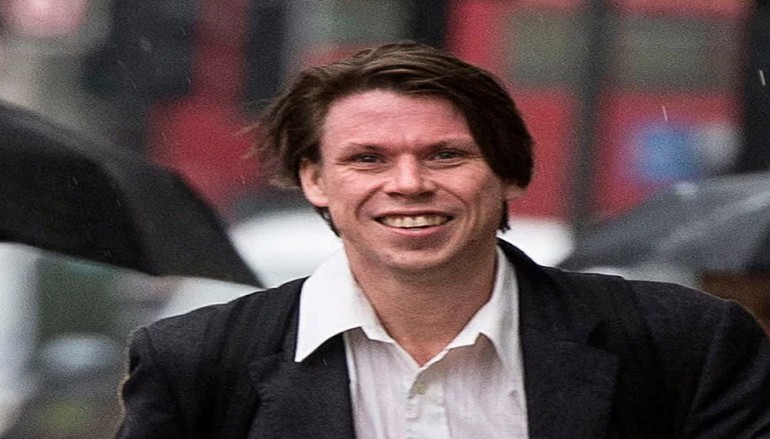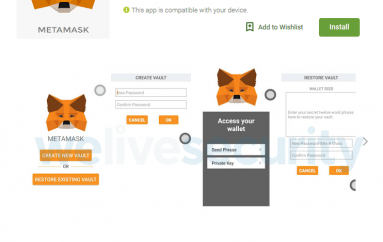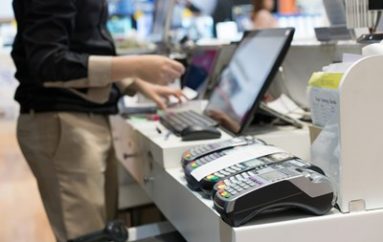
Court refuses request to force alleged hacker to divulge passwords
An alleged hacker fighting extradition to the US will not have to give the passwords for his encrypted computers to British law enforcement officers, following a landmark legal ruling.
Lauri Love, a 31-year-old computer scientist, has been accused of stealing “massive quantities” of sensitive data from US Federal Reserve and Nasa computers. His lawyers say he faces up to 99 years in prison if found guilty in the US.
The National Crime Agency (NCA) raided Love’s family home in Stradishall, Suffolk, in October 2013, seizing encrypted computers and hard drives. No charges were brought against him in Britain and Love is suing the NCA for the return of six items of encrypted hardware, which he says contain his entire digital life.
The NCA applied to the courts to force Love to hand over his passwords before it returns the computers but this was rejected by a judge on Tuesday.
Speaking to the Guardian, Love called on governments around the world to set aside differences with activists and hackers and to work together to improve global computer security.
“The US government is conducting a war against information activists like me,” he said. “This kind of thing is a distraction from what is really important – keeping the world secure. I am offering a ‘third way’ where governments and hackers work together and bridge the divide. Governments should be making the most of the talent that computer hackers have to try to work together to solve the problems of computer lack of security.
“If someone hacks into your computer they can take over your life and your identity. We are more and more reliant on computer security for security for ourselves.”
Love said there was a lot of distrust of governments from activists as a result of scandals involving surveillance and undercover policing. “We have to put our differences aside,” he urged. “What we really need to do is sit round the table together and start to have a conversation.”
Love said the past few years of interactions with the police and US authorities had taken an enormous personal toll on both him and his family. “I spent two years in an acute and crippling state of mental distress,” he said. “I developed eczema and had a lot of difficulty sleeping. Now I am feeling recovered enough to continue studying for my electrical engineering degree and have my finals coming up.”
District judge Nina Tempia refused the NCA’s application at Westminster magistrates court on Tuesday, saying that to do so would “circumvent specific legislation that has been passed in order to deal with the disclosure sought”.
Speaking outside court after the ruling, Love said he was happy with the result and accused the NCA of trying to undermine protections safeguarding individuals’ property.
“It is a victory, although it is a more an avoidance of disaster,” he said. “It retains the status quo, which means there has to be safeguards before you force people to undermine their security.”
His lawyer, Karen Todner, of Kaim Todner, said the ruling was right. “The case raised important issues of principle in relation to the right to respect for private life and right to enjoyment of property and the use of the court’s case management powers.
“A decision in the NCA’s favour would have set a worrying precedent for future investigations of this nature and the protection of these important human rights.”
Love was arrested on 15 July 2015 on behalf of the US government, which had issued several indictments and corresponding extradition warrants.
The FBI and US Department of Justice allege that Love was involved in hacking into various government agencies, including the US army, Nasa, the Federal Reserve and the Environmental Protection Agency. His extradition hearing will be held on 28 and 29 June.
Outside court, Love said he was scared at the prospect of being sent to the US for criminal prosecution. “It is the worst thing I could imagine happening to me. I have to get on with my work and my studies, I can’t afford to be stressed or depressed or anxious about it.”
Love’s case has echoes of the FBI and Apple dispute in the US. In 2015 and 2016, Apple received, and objected to or challenged, at least 11 orders issued by US district courts which sought to compel the firm to extract data, such as contacts, photos and calls from locked iPhones.
The most well-known instance was in February 2016, when the FBI wanted Apple to create and electronically sign new software that would enable the FBI to unlock an iPhone recovered from one of the shooters in the December 2015 terrorist attack in San Bernardino, California.
The government ultimately said it had found a third party able to assist in unlocking the iPhone and withdrew its request.
Source | TheGuardian





